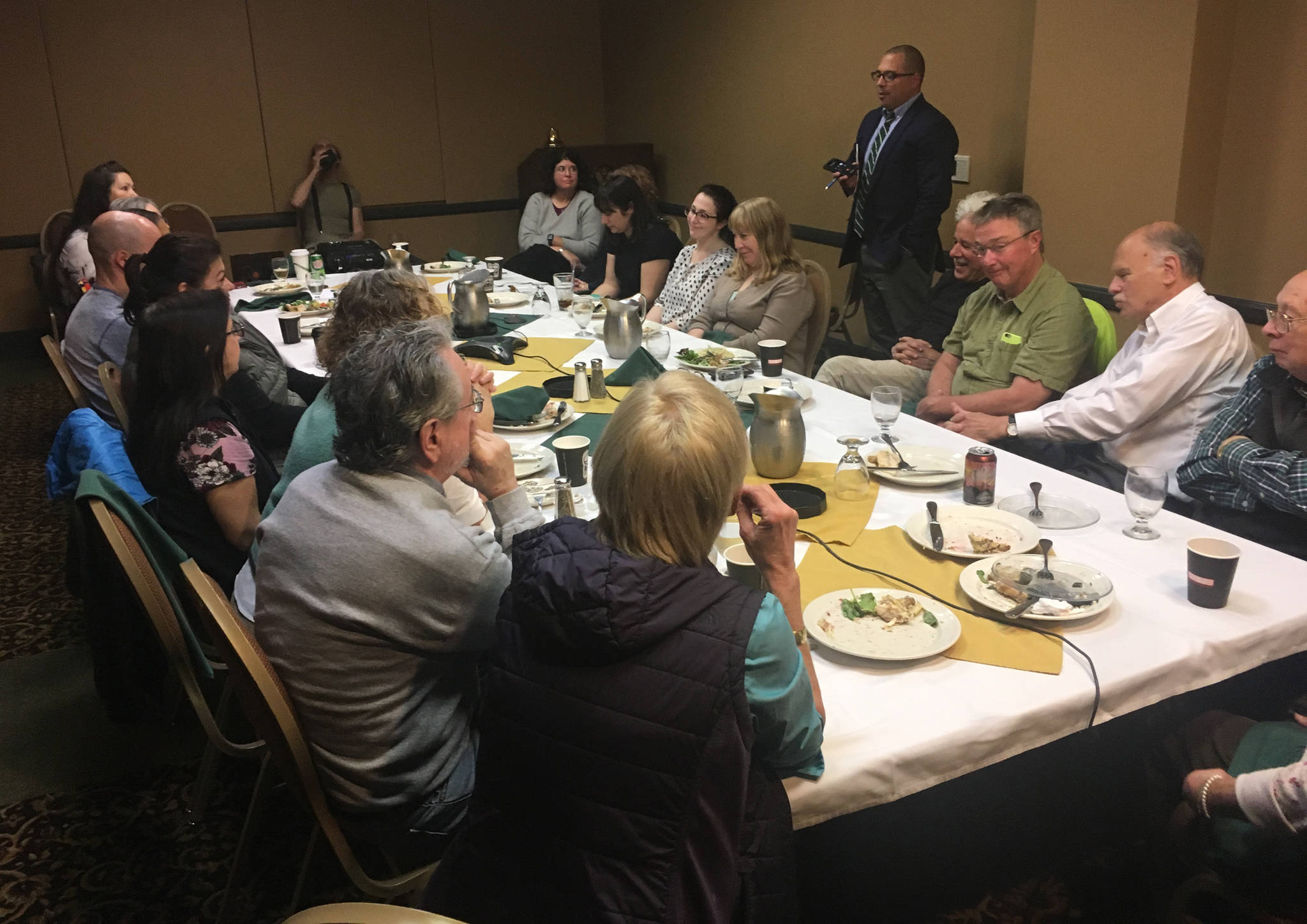One of the candidates for Juneau’s new Superior Court judgeship is advocating for more Alaska Natives on the bench. Another is making a second attempt at a job withdrawn by Gov. Bill Walker at the last moment.
On Friday, members of the Juneau Bar Association heard from five of the six people vying for the new third Superior Court judgeship in Juneau. It was the last chance for the six candidates to be heard by their fellow lawyers before those lawyers turn in surveys that play a key role in the selection process.
Juneau’s third Superior Court seat was created by the Alaska Legislature this year when lawmakers voted to convert one of the city’s two District Court judgeships into a higher court. More felony-level offenses are reaching Juneau’s courts, and an additional judge is needed to carry the load, the state’s chief justice said in his annual State of the Judiciary address.
Judges are selected by the governor, but he must pick from a list of nominees vetted and winnowed by the Alaska Judicial Council, a nonpartisan body of seven members. (The seventh member, the chief justice of the Alaska Supreme Court, votes only to break ties.)
One of the tools the judicial council uses to select finalists (it must pick at least two) is a survey of bar association members who have worked with those candidates.
Speaking to the Juneau bar at the Baranof Hotel, Tlingit and Haida Central Council Tribal Court judge Debra O’Gara said Alaska’s court system needs more Alaska Native judges.
“When you look at the judiciary in the state of Alaska, compared to the population in the state of Alaska, there’s something really missing on the bench, and that is Native judges,” she said.
O’Gara said she wants to be a role model, even if she isn’t selected by the judicial council or governor.
“If I don’t accomplish anything else, I hope I accomplish opening that door a little wider,” she said.
Defense attorney Julie Willoughby was the top pick for the last Superior Court vacancy in Juneau, but Gov. Bill Walker declined to select her because he disapproved of the way she handled the defense in a sex abuse case. Public opinion was divided about that decision, which was hailed by victims rights advocates but scorned by the Alaska Association of Criminal Defense Lawyers.
Willoughby, who scored the highest in the bar survey during the last vacancy, said she had little more to offer, but in response to a question, she explained her experience with family law, torts and non-criminal cases.
Two other candidates — Matanuska-Susitna attorney Shawn Traini and Valdez judge Daniel Schally — participated in the discussion by phone. Juneau District Attorney Angie Kemp was traveling and did not participate.
Schally, who has 12 1/2 years of experience on the Valdez District Court bench, said he formerly served as Ketchikan’s district attorney and would like to move back to Southeast.
Traini said, “Juneau is a place I’ve always wanted to live,” and he and his family are ready for a move.

